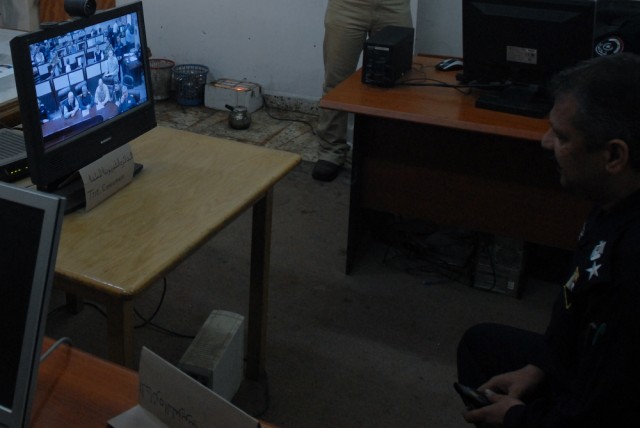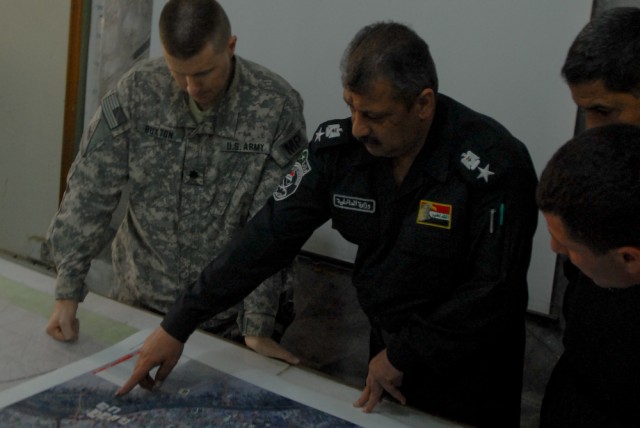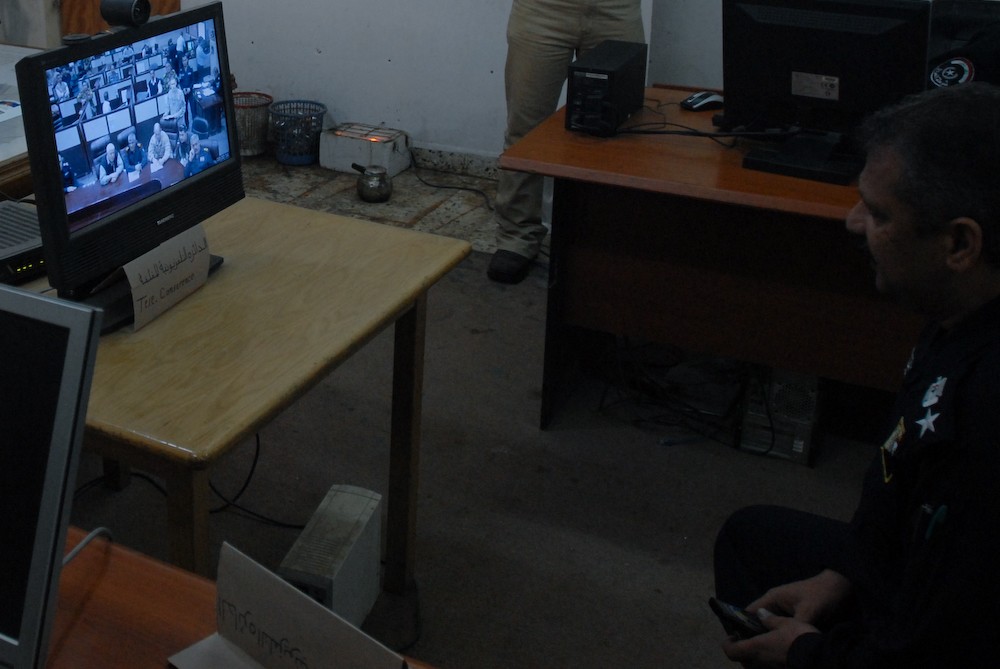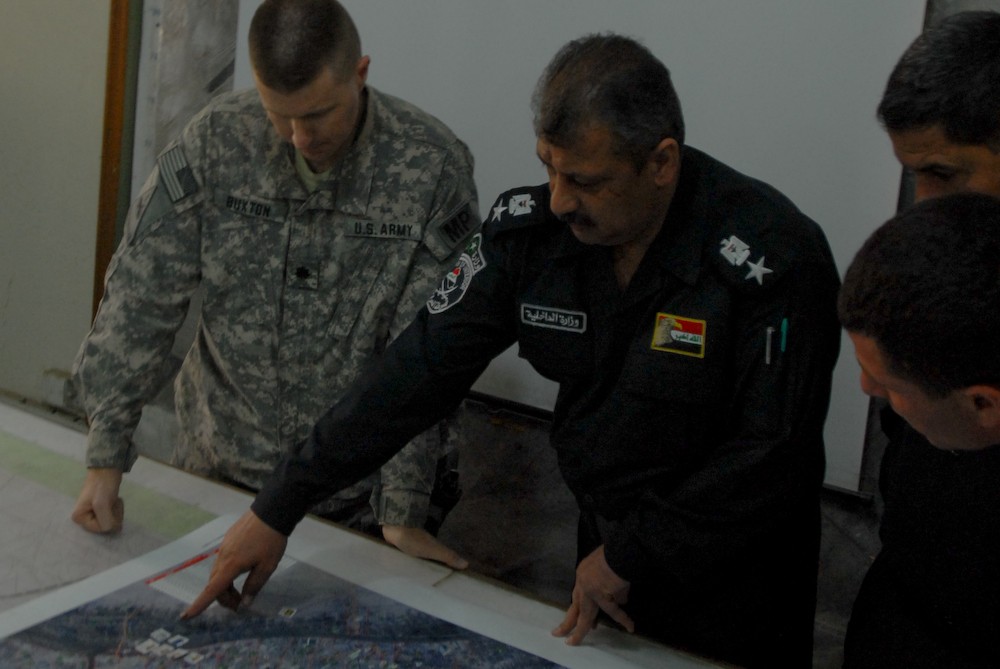As tens of thousands of Basra residents voted in the March 7, 2010, national elections, Soldiers from the 206th Military Police Company joined their Iraqi Security Force partners in monitoring the country's second largest city in its Provincial Joint Communications Center.
The PJCC is a compound of many facilities, including a modern crime lab, a criminal intelligence center, a jail, barracks and administrative offices, said 1st Lt. Nicholas Monuteaux, a platoon leader with the 206th MP Co., a New York National Guard unit based in Albany. The MPs are deployed to Contingency Operating Base Basra, where they fall under the 203rd MP Battalion, attached to 17th Fires Brigade.
Rather than a staging area for executing missions, the PJCC is where representatives from Government of Iraq law enforcement, public safety and military forces work together in a single command room to keep each other informed, hearing the same reports and looking at the same map said Monuteaux, from Rensselaer, N.Y.
For roughly eight hours on Election Day, Lt. Col. Charles Buxton, the commander of the 203rd - itself a unit of the Alabama National Guard - stayed at the PJCC to be on-hand in case something happened to break the peace.
To help the Iraqis better follow the movements of the military units and teams of election observers that the MP's were tracking, Buxton, who lives in Duluth, Ga., brought with him pieces of paper, just smaller than a postal stamp, each labeled with the name of a military element or election observer team. These tabs were placed on the large, high-resolution satellite image of the province the Iraqis had laid out on the map table of the long room.
For the MP's, another advantage of the PJCC is being available to answer questions the Iraqis have about the missions and posture of U.S. forces, he said.
A case in point was the report after the polls had closed that a U.S. military convoy was spotted just outside the Basra city limits. The Iraqis were not tracking the convoy and an Iraqi police commissioner went to the map table at the end of the command center's long room to plot the convoy's location.
Joining the commissioner were other IP's and an Iraqi Navy lieutenant commander, whose work space and desk were near the table. Together with some MP's, they compared the report with the positions and movements of U.S. forces labeled on the map, while other MPs called up to their battalion Tactical Operations Center with their own query.
Within 15 minutes of the report, the police commissioner was able to report to the shift commander that the U.S. military vehicles were part of an Iraqi team securing ballots from polling stations.
Another example was when the battalion TOC called the MP's at 5:30 p.m. to make sure the IP's knew that the government had lifted the election night curfew. One MP turned to another and said, "Yeah they know-they told us."
In fact, the IP's had passed the information to the U.S. Soldiers just before noon.
Throughout the day, Lt. Col. Awooda Abdal Hafael Manaa, the PJCC shift commander that day, conducted video conference calls with the national operations center in Baghdad with updates on the public safety and security situation.
Several times, Baghdad asked if there were any reports of violence, always receiving a negative response. "Then, you are still the 'White Province,'" Baghdad would respond.
"White Province," referred to the fact that the entire province of Basra was not marred by trouble or violence, Monuteaux said.
"Basra is the model for all the other provinces today," he said.
As reports came to the MPs, often Buxton himself would move the tabs and use these updates as an opportunity to brief the shift commander.
At 6:15 p.m., after the polls had closed and before Buxton returned to the Basra Operations Center, a centralized facility specifically for the Iraqi military, he gestured to his interpreter and said, "Let's let the shift commander know what is going on."
Then, at the map table, the battalion commander briefed Manaa on the most recent movements of U.S. and other non-Iraqi contingents.
When he had finished, the IP colonel asked Buxton for an honest assessment of the how the day's operation had gone.
During his drive through the city that morning, Buxton said to him, he saw that both security force officers and patrolmen carried themselves with professionalism.
"I am glad it went well today and there were no accidents," the battalion commander said. "I think you had a very good plan."
Keeping the Iraqi Police as the inner ring, with primacy in the city, while the Iraqi Army provided security around the outer ring, also worked out very well, he said.
"Now we just have to work together to secure the ballots," the commander concluded said.
For the voters, the day was over, but, for the Iraqi Security Forces and their partners from New York, it was on to the next phase.




Social Sharing